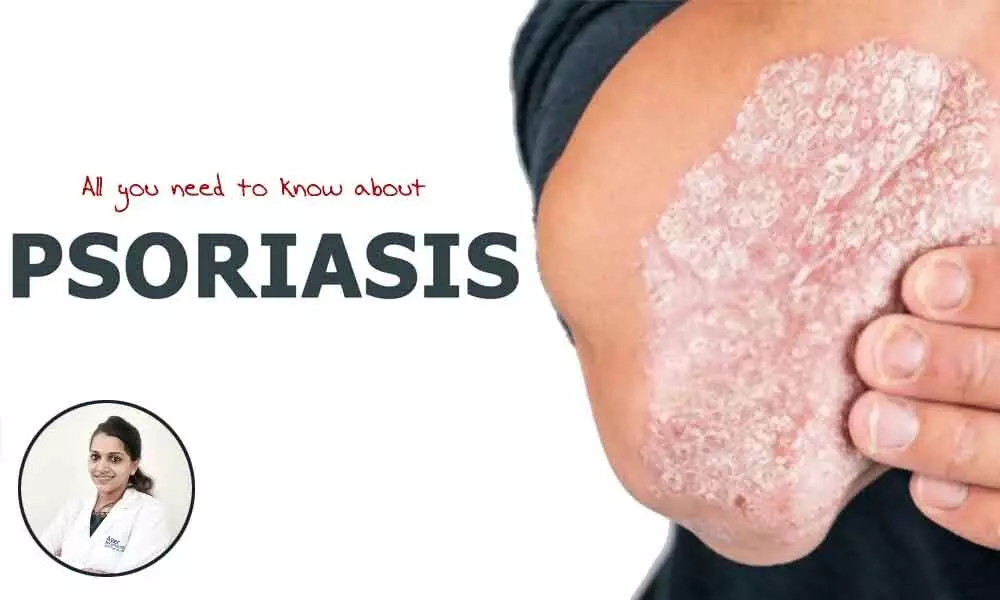All you need to know about psoriasis

All you need to know about psoriasis
Psoriasis is non-contagious and treatable but still associated with a lot of social stigma.
Psoriasis is non-contagious and treatable but still associated with a lot of social stigma. Many times it is misdiagnosed and wrongly managed by quacks leading to complications. People need to be aware of this condition.
Psoriasis is a chronic auto-immune disorder that occurs due to a complex interplay of genetic risk factors and environmental triggers. The most common clinical presentation is well defined itchy, red scaly patches over the joints, scalp, palms & soles. However, any part of the body may be affected. It may be associated with symptoms of joint pain (psoriatic arthritis), and nail changes (pitting). The disease frequently waxes and wanes, with exacerbation noted during the winter months. Stress, alcohol consumption, smoking, a physical trauma (koebnerisation) and various drugs (pain killers, anti-hypertensives, anti-malarial drugs) are known to trigger/ exacerbate the disease.
There are different clinical types of psoriasis- the most common type is chronic Plaque Psoriasis, where well defined scaly red plaques are seen over the trunk and extensor aspects of the body. More commonly seen in children, guttate psoriasis typically appears after an upper respiratory infection. It is a mild type of psoriasis with rain drop-shaped lesions developing over the trunk. A more severe form of the disease, pustular psoriasis is a condition in which pustular lesions develop over pre-existing plaque psoriasis, and requires immediate care.
A patient with pre-existing psoriasis, erythrodermic psoriasis could develop redness and scaling developing all over the body and is known as Erythrodermic psoriasis. Such patients need immediate care. Another type of psoriasis is inverse psoriasis where lesions are located over the skin fold and flexural aspects instead of the typical extensor regions. Some of the localised forms of the disease are scalp psoriasis, palmoplantar psoriasis, and nail psoriasis.
Psoriasis is also associated with various comorbidities like autoimmune disease, heart disease, metabolic syndrome and depression. Therefore, patients should be regularly screened for the above.
There are a wide variety of treatment options available for psoriasis, the choice of which is decided by your dermatologist depending on the extent of your disease. Anti-histamines to reduce itch, emollients to hydrate the skin and topical anti-inflammatory agents like steroids, vitamin D analogues, salicylic acid, coal tar etc. are the commonly prescribed agents.
For severe cases, oral or injectable drugs like methotrexate, cyclosporine and biologicals may be required in addition.
Psoriasis flares can be prevented with a few steps. Moisturization of the skin is the key. Apply a good emollient 2-3 times/day. Avoid having very hot baths as it dries up the skin. If it is feasible, relocate to a place with a warm and humid climate. Avoid smoking and alcohol consumption. Maintain a healthy lifestyle with a balanced diet inclusive of fruits and vegetables and regular physical exercise. Practise yoga, meditation and other de-stressing activities. Never take OTC medications or apply home remedies without consulting a dermatologist.
(The author is, Consultant – Dermatologist, Aster RV Hospital)








